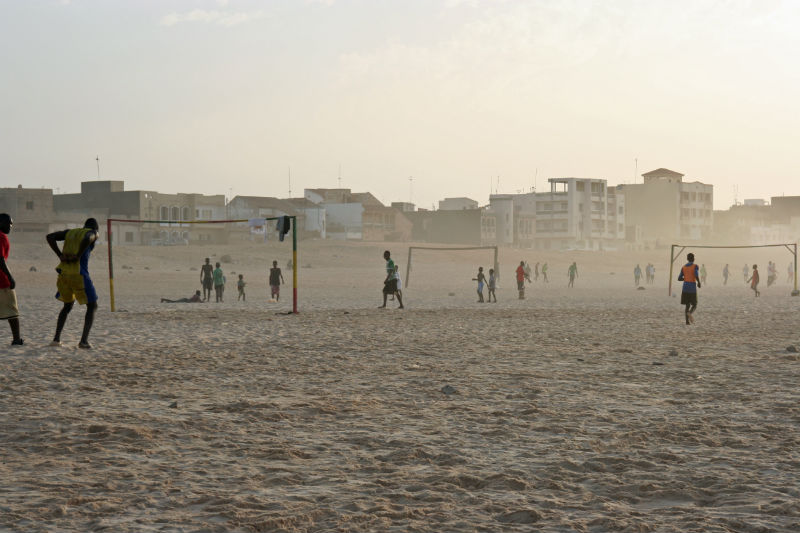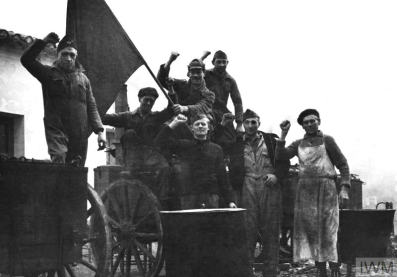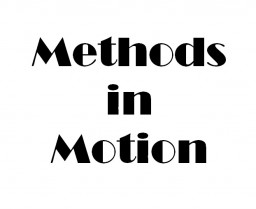 Sport on a beach in Dakar
Sport on a beach in Dakar
Due to the deep emotions which may be evoked among both participants and researchers, topics such as death and bereavement can raise particular challenges for qualitative and cross-cultural researchers. Indeed, I and my colleagues have reflected during our project Death in the Family in Urban Senegal on the methodological complexities of producing ‘emotionally sensed knowledge’, while the post on 3 March by our co-investigator Jane McCarthy explored What We Don’t Know in Cross-Cultural Research.
Given our focus on understanding the material and emotional significance of the death of a relative, we sought to engage in an approach of ‘uncomfortable reflexivity’ throughout the research process. Our team comprised UK, Senegalese and Burkinabé researchers. While we were all women, we occupy different positions regarding age, generational and family positioning, stage of career, nationality, race, religion, class, experiences of death, areas of academic expertise and research experience. Participants, too, had multiple positionings. We sought to critically reflect on the multiple, diverse and intersectional ways we may be positioned and understood as ‘outsiders’ or ‘insiders’, as ‘strange’ or ‘familiar’, not only to participants but also to one another.
To do this, we engaged in reflexive conversations among team members that were audio-recorded and transcribed. This enabled us to explore cultural assumptions associated with grief in our countries of origin and religious and social differences in practices and expectations using Walter's checklist of questions. We also interviewed one another about our experiences of the death of a relative to understand more about our own and one anothers’ emotional responses and the feelings aroused by being interviewed on this topic.
These reflexive approaches helped to acknowledge and make visible our cultural world views and personal experiences, while disrupting our sense of familiarity and distance from participants’ and each others’ experiences.
Our project has sought to recognise the significant emotional labour involved in researching death and bereavement and the impacts sensitive research can have on both researchers and participants. The emotional labour and cumulative effect of listening to stories of suffering in interviews, transcription and data analysis also need to be acknowledged. We sought to provide a space to discuss these emotional impacts through debriefing meetings, phone and Skype calls.
A core aim was to understand how the death of a relative affected the emotional wellbeing of family members. In line with feminist methodologies, we recognised that emotions have epistemological significance in producing ‘emotionally sensed knowledge’. A key challenge was therefore how to capture the emotions expressed and communicated between participants and researchers in interviews.
We sought to build the confidence of team members by openly discussing emotions in team meetings and informally in the field. We learned that producing emotionally sensed knowledge also requires trust and depends on researchers’ epistemological and ontological stance, personalities, team power dynamics and differing communication preferences.
Less attention is often paid to how emotions influence interpretation of the data. We sought to engage in the sometimes uncomfortable process of acknowledging our differing responses to the interview transcripts and reflect on our approach with the field researchers in order to develop a shared cross-cultural understanding. For example, differing expectations and meanings associated with ‘family’ and household composition were evident in our emotional responses to transcripts; while frequent references to ‘It’s God’s will’ to explain acceptance of death in participants’ narratives posed challenges for non-Muslim team members to interpret.
Reflecting on the difficulty of expressing our own feelings about the death of a relative in an interview setting helped us attend to the ‘untold within interviews’ and embodied means of communication, such as tears, change of tone, silences, hesitations and abrupt changes in narrative. We held participatory feedback workshops with participants in Senegal following data analysis, an active dissemination approach which I found worked well in previous studies. Workshops enabled us to explore with participants the cultural nuances of recurrent phrases and emotional responses we found particularly challenging to interpret.
We have sought to show how our approach of ‘uncomfortable reflexivity’ helps to reveal the work of emotions in research. This approach enabled us to ask questions of the data and explore how and why emotions are – or are not – expressed in different places, as well as supporting each other. By continuing to work with our emotions, we endeavour to produce ‘emotionally sensed knowledge’ about responses to death in Senegal and contribute to the cross-cultural study of emotions.
This is an edited version of a post that first appeared on the Death in the Family in Urban Senegal: Bereavement, Care and Family Relations project’s website and we are grateful for their permission to republish it.
Methods In Motion
The Methods in Motion blogs are by researchers linked to the Centre for Citizenship, Identities and Governance. The blogs represent their opinions emerging from research in progress, and do not necessarily represent the views of the Research Centre or Open University. You can discover more about Methods in Motion on the CCIG website.






Rate and Review
Rate this article
Review this article
Log into OpenLearn to leave reviews and join in the conversation.
Article reviews